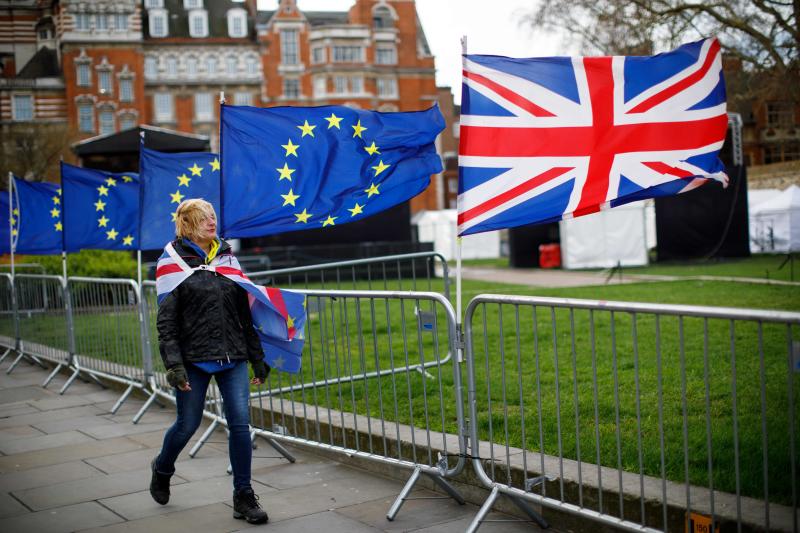As the clock ticks on Brexit, Japan warns of irreversible damage from political disarray
Sign up now: Get insights on Asia's fast-moving developments

Britain's reputation for being stable, pragmatic and relatively business friendly could suffer irreversible damage by the political disarray, said Japanese experts.
PHOTO: AFP
Follow topic:
TOKYO - Japanese experts have again called for clarity amid the chaotic Brexit process, even as British Prime Minister Theresa May earned a two-week reprieve from the European Union.
They told a symposium on Brexit on Friday (March 22) that a disorderly, no deal exit from the European Union will hurt the interests of the 1,000 Japanese firms in the United Kingdom that collectively employ some 140,000 people.
Worse still, Britain's reputation for being stable, pragmatic and relatively business friendly could suffer irreversible damage by the political disarray, they told the conference, which was co-organised by Japan's Research Institute of Economy, Trade and Industry and the UK's Centre for Economic Policy Research.
The ensuing uncertainty means many Japanese firms are already acting on costly contingency plans to stockpile inventory to avoid sharp tariff increases, or to plan drastic changes to their supply chains, Hitachi's special representative for external relations Yasuo Tanabe said.
Already, there has been an exodus of companies like car makers Nissan and Honda and electronics giants Panasonic and Sony. Japan's financial services sector is also hedging their bets: while they have not said they will leave Britain, the likes of banks from Nomura to Mitsubishi UFJ, Daiwa, Mizuho and Sumitomo are expanding their presence in mainland Europe.
Dr Eiichi Tomiura, an economist at Japan's Hitotsubashi University, said that it was not just a matter of taking short-term measures, as the costs associated with reorganisation are huge.
"When there is going to be more uncertainty, then for contingency companies will need to prepare dual sourcing and redundancies," he said. "They will need to reallocate resources for those areas, which means the productivity of the global economy will be undermined. Who is going to bear the cost of that?"
University of Sussex economist L Alan Winters, a British expert on the trade policy implications of Brexit, told the symposium that Japan was clearly fed up with Britain.
He said there was an outside chance, given the state of political meltdown, that the British Parliament may in the end revoke Article 50 to cancel the Brexit process given mounting domestic and foreign pressures.
But it was more likely, he added, that Parliament will fail to agree to a deal by April 12, after a two-week extension of the previous March 29 deadline, and Britain will crash out of the EU without any transition period nor economic buffer.
This means the UK will lose the benefits it enjoys under EU trade deals overnight, including the Japan-EU economic partnership agreement. Conversely, Japan will also lose these benefits when it trades with Britain.
Mr Jun Kazeki, deputy director-general of economic and industrial policy at Japan's Ministry of Economy, Trade and Industry, warned that this outcome must be prevented.
While a lot of focus has been placed on trade in goods, tariffs and customs procedures, he warned that not enough thought has been placed on the "equally important" sectors like trade in services and technical regulations.
"Our hope is that the UK and the EU will have prepared a risk scenario given the concerns of the international business community," he said.
Still, Dr Winters was not just pessimistic, but scathing.
"Forty-five years of integration is difficult to unpick without massive collateral damage," he said. "Views of Brexit were ill-informed and diverse at all levels, and there has been no national conversation to work out what it is and what we want."
The economic discussion thus far, he said, has been characterised by "entirely wishful thinking by political players who have made no attempt to listen or to bridge differences, and who are increasingly focused on short-run survival."
He added: "We will take another deep breath and wait until April 12 for another crisis. But I'm hoping that Britain actually might come to its senses politically."

